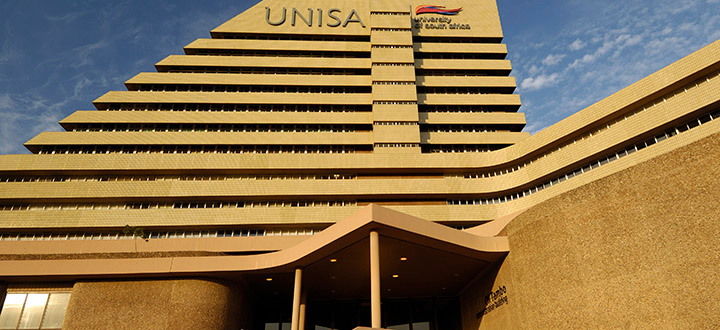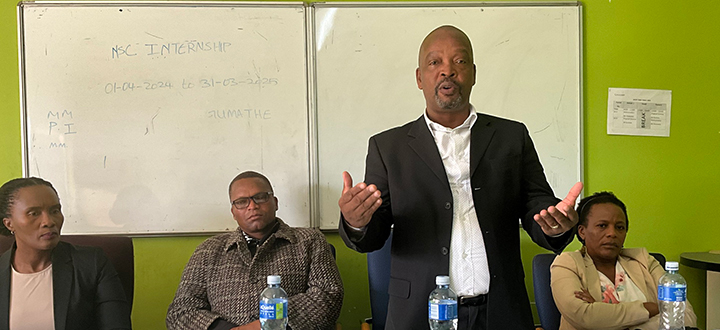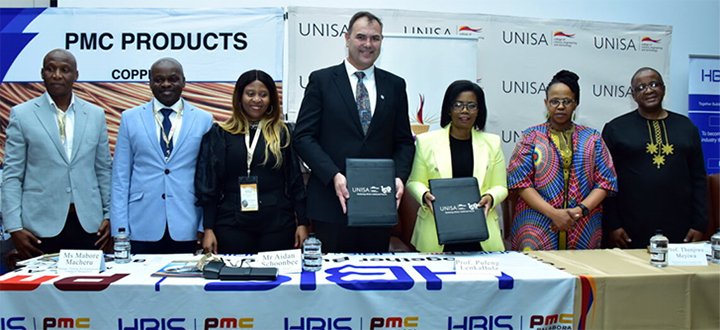Whatever the merits of the #RhodesMustFall and #FeesMustFall student protest movements in South Africa, they have undoubtedly highlighted issues involving a tertiary education system that many consider still to be in thrall to the colonial experience.
Set against that backdrop, the annual Decoloniality Summer School, held by the University of South Africa’s (Unisa) College of Human Sciences and now in its fifth year, allows for discussion and dialogue among South African academics regarding the material they teach.
According to Puleng Segalo, head of research and graduate studies at the Unisa College of Human Sciences and one of the organisers of the summer school, the aim is to “create a space for scholars to engage on the topic of decoloniality and with issues of epistemological violence within the academic sphere; a form of violence which ultimately bleeds into the broader society.”
“To decolonise is to confront, challenge and reject the status quo,” she said. “This came about as many academics, students and activists felt suffocated within the various spaces they occupy and wanted to ‘speak back’. Decoloniality is about acknowledging that knowledge is produced from a body which then implies that we think, feel and act from a particular position.”
“Many students felt that they could not locate themselves in the courses they are being taught and as a result felt the need to call for the decolonisation of curriculum within institutions of higher learning. The academic space has been one of the many platforms that remind us of the legacy of apartheid and colonialism.”
A new lens for study materials
Segalo said South African universities are currently going through a transformation process and “this entails having to go through re-curriculation processes where modules are reworked; this has created an opportunity of ensuring that a decolonised lens is used when new study materials are developed.”
Decoloniality challenges the Eurocentric educational and intellectual dominance of previously colonised countries in Asia, the Americas and Africa – a dominance that also dictates the desired benchmark in the fields of education and knowledge production.
“Decoloniality is really about a skilful way of using world knowledge production,” said Segalo. “Colonialism did a lot of damage, setting in place a belief that we [in previously colonised countries] don’t have a history; that you have to be in a certain way. That enters your consciousness. Decoloniality challenges that.”
While there has been some attempt in South Africa to ‘decolonise’ the universities and the curriculum, Segalo said the extent of the trend depended on the buy-in of university structures and of university management. “Currently there are pockets of people inside universities changing their methods and modes of teaching. You find that masters and doctoral students are already questioning – looking at things through the decoloniality lens.”
Beyond lecture halls
Segalo said the decoloniality project cannot be restricted to university campuses alone. “There are bodies outside universities that register and licence, that set board exams, which also come into play. Change is not only needed in universities but among the stakeholders linked to universities.”
Segalo said the annual summer school is primarily aimed at the student body and academics. “The latter being the teachers. It provides them with a space to reflect on learning processes. But we are also seeing teachers from primary and high school level coming. That’s a very important step. Decoloniality cannot happen only at university level; it’s also about what’s taught in classrooms, not just the lecture hall.”
A key speaker at this year’s summer school was Lewis Gordon, professor of philosophy and Africana studies at the University of Connecticut in the United States. “It’s very important to know where ideas come from,” he said. “If you don’t, you are still in a subordinate position to them. There is the idea that the notion ‘to think’ is to be European. This implies that it’s not out of your own experience: that the European experience is more valid than your own experience.”
With regard to decoloniality Gordon said it was important to be clear about your intentions and that it was necessary to distinguish between reclaiming the past or returning to it.
Return or reclaim?
“Do we want to return or to reclaim?” he asked “You can never return. By returning you erase the memory of the trauma that you had recalled and which made you want to go there in the first place. If you ‘return’ it collapses into a conservative and right-wing project. But if you ‘reclaim’, you recover the memory of what you have lost – it’s a selective act: you reclaim the elements of the past that you want and you discard those you don’t want.”
Gordon said decolonisation is easy to think of as getting rid of something. “But if you simply get rid of it you become the coloniser. If you just do that you change the players, you don’t change the game.”
Gordon said the key to decoloniality is knowing where you want to go. “Decolonisation is not going to get you anywhere, though it’s a start. You need to transform things, for the better not the worse.”
“The question you have to answer is what kind of university, what kind of society, what kind of human relationships would you like to build – and is it liveable for human beings? If it’s not, then your colonisers have won.”
Relational state
Gordon envisioned a decolonised country as being “a relational state”, one open to engagement with the rest of the world and looking towards a “global understanding of processes of improvement – part of a global, federal world that cultivates the empowering of people”.
Such a country would draw on all the resources available to it. “Do we say we are not going to use certain technologies if they cannot be authenticated as African? You draw on resources that are available – that make life liveable, that are right, that other people find useful.”
“Steve Biko drew on the writing and work of others and out of that he created ideas that spoke to the world. Ideas that people can relate to whether they are living in Harlem or Manila.”
The shape of a future society was also raised by Oyeronke Oyewumi, associate professor of sociology at Stony Brook University in the United States, who viewed decolonisation as a transitional process to people reclaiming their country.
Reclaiming subjugated knowledge
Oyewumi said people in decolonised countries continued to exist in a “colonial miasma” and it was necessary to question the received wisdom found in such communities in order to “reclaim subjugated knowledge”, citing as an example the common African belief that women don’t or cannot own land, a belief often justified by the explanation “It’s our culture” – a response that needed to be challenged and examined. “There is also the idea that Africans have no writing; that ‘we’re oral’ – it’s bull. Oral and written are not opposed to each other.”
“Another idea is that Egyptians and Ethiopians are not Africans because they are associated with writing. But there are scripts all over the continent.” Oyewumi cited Ajami, the modified Arabic script that has been used for centuries for writing in African languages, including Hausa, Swahili and Yoruba. “African languages in turn enriched Arabic. There is an immense body of work written by Africans in an African language. Why has it taken us so long to find this out? Because we didn’t look!”
Rozena Maart, director of the Centre for Critical Research on Race and Identity at the University of KwaZulu-Natal in South Africa, said there was a need to develop a language to address racism and coloniality. “What exactly are we decolonising? We all use iPads and cell phones – what do we decolonise from? If we don’t have the words to say it, we are not going to do it.”
She cited the challenge posed by Ngugi wa Thiong’o, the Kenyan writer and academic, who decided to stop writing in English, and to write in his native Gikuyu, on the basis that “speaking in a particular language upholds that civilisation”.
“English traps us. We can’t think outside that particular language, we are schooled in the coloniality of that language.”
Maart said it was not a case of denying an individual’s heritage but examining “What makes me black, what makes me white?”
“Decolonisation,” according to Tendayi Sithole from the department of political sciences at Unisa, is “not the end of the journey. We don’t intend to colonise whites but to disestablish the privilege that accrues to whiteness and build a better world.”
*By Stephen Coan | 26 January 2018 Issue No:213
This article first appeared on University World News and is used with permission. You can read the original here.

 Unisa remains anchored among the waves
Unisa remains anchored among the waves
 Inhlanyelo Hub explores sustainable tourism initiatives in Marico Biosphere Reserve
Inhlanyelo Hub explores sustainable tourism initiatives in Marico Biosphere Reserve
 Unisa KZN Region explores extending university services to KwaMpungose community
Unisa KZN Region explores extending university services to KwaMpungose community
 Unisa's catalytic niche areas provide industry-focused mining innovations
Unisa's catalytic niche areas provide industry-focused mining innovations